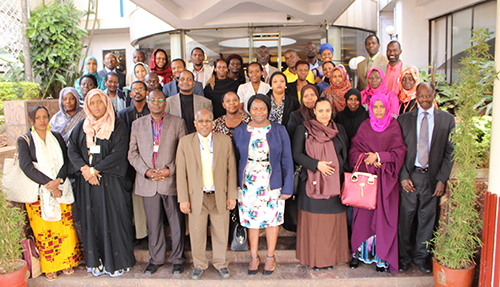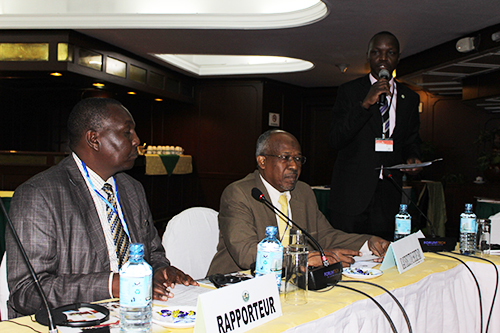 16-12-2015, Nairobi: The Director of the Economic Cooperation and Social Development Division of the Intergovernmental Authority on Development (IGAD), Mr El Sadeg Abdallah, this morning opened a workshop aimed at establishing an IGAD Gender Management System (GMS) in the presence of a representative from the Kenyan Ministry of Youth and Gender in Nairobi.
16-12-2015, Nairobi: The Director of the Economic Cooperation and Social Development Division of the Intergovernmental Authority on Development (IGAD), Mr El Sadeg Abdallah, this morning opened a workshop aimed at establishing an IGAD Gender Management System (GMS) in the presence of a representative from the Kenyan Ministry of Youth and Gender in Nairobi.
A total of 50 participants from IGAD Member States, COMESA staff members, as well as IGAD personel are participating in this three-day workshop that is within the framework of IGAD Institutional Strengthening Action Plan.
The overall objective of this workshop is to identify in a comprehensive and critical manner strategies and actions for strengthening leadership and accountability measures for gender mainstreaming at IGAD Secretariat, Specialized Offices and Programmes.
More specifically, participants are discussing actions to institutionalize the GMS for IGAD structures through formation of essential elements and delineation of responsibilities at all levels of the system in order to identify strategies to make the GMS functional in IGAD with the ultimate goal of raising awareness about and building consensus on the GMS.
In his opening remarks, Mr. El Sadeg Abdallah stated that this workshop was a clear demonstration of IGAD firm commitment to the agenda of Gender. “It is unacceptable to find that gender inequalities remain a prominent feature of our socio-economic, political, and cultural fabric”, he said.
He added that during this three-day meeting, critical insights shall be provided to the IGAD Gender Management System, and vital inputs brought to the IGAD Institutional gender Policy and to the IGAD Gender Strategy 2016-2020.
A Gender Management System is a network of structures, mechanisms and processes put in place within an existing organisational framework, to guide, plan, monitor, and evaluate the process of mainstreaming gender into all areas of the organisation’s work, in order to achieve greater gender equality and equity within the context of sustainable development.###
